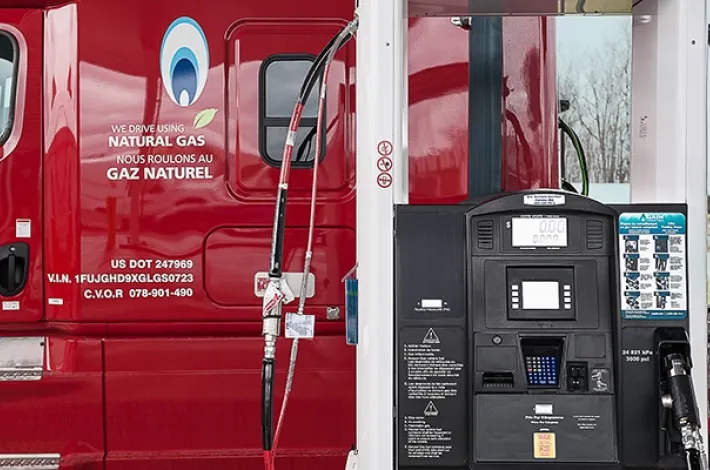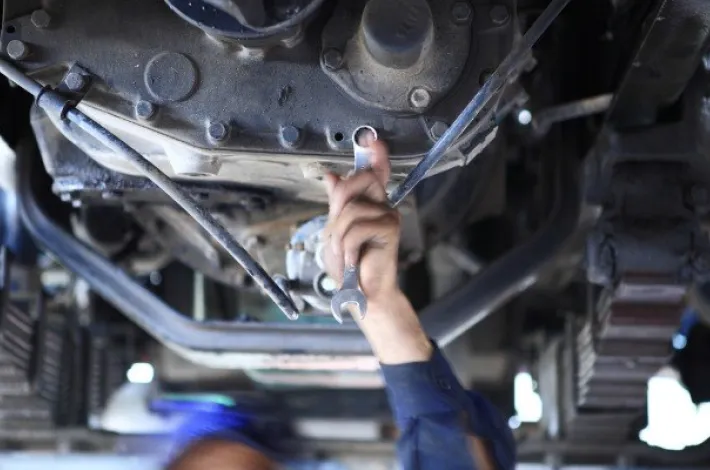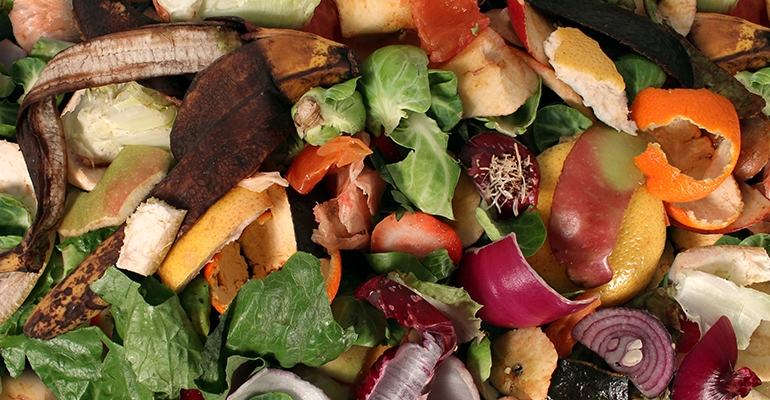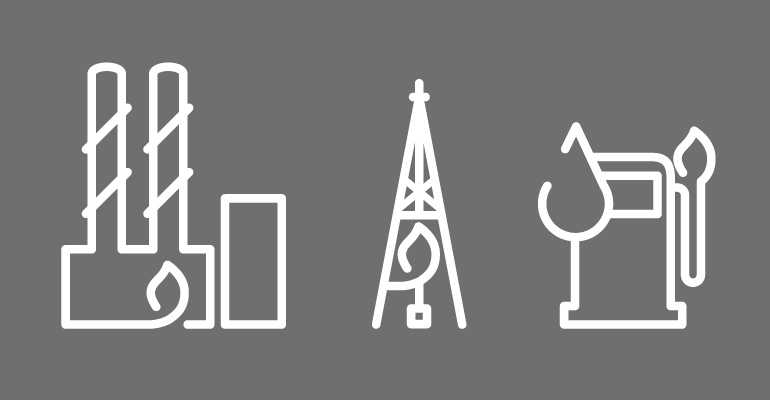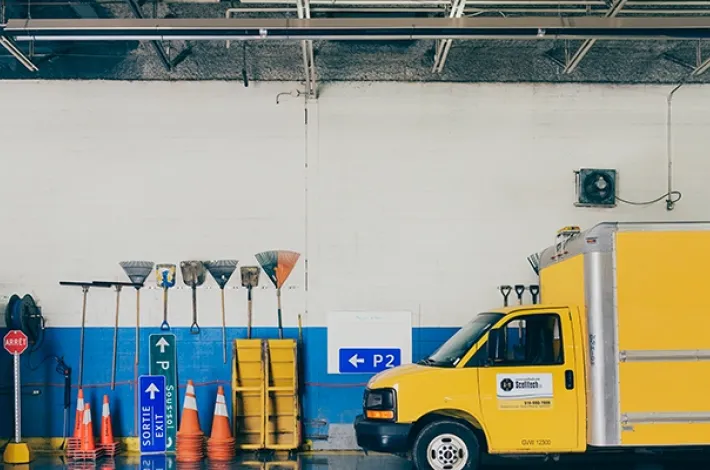
In Saint-Hyacinthe, nothing is lost – everything is transformed
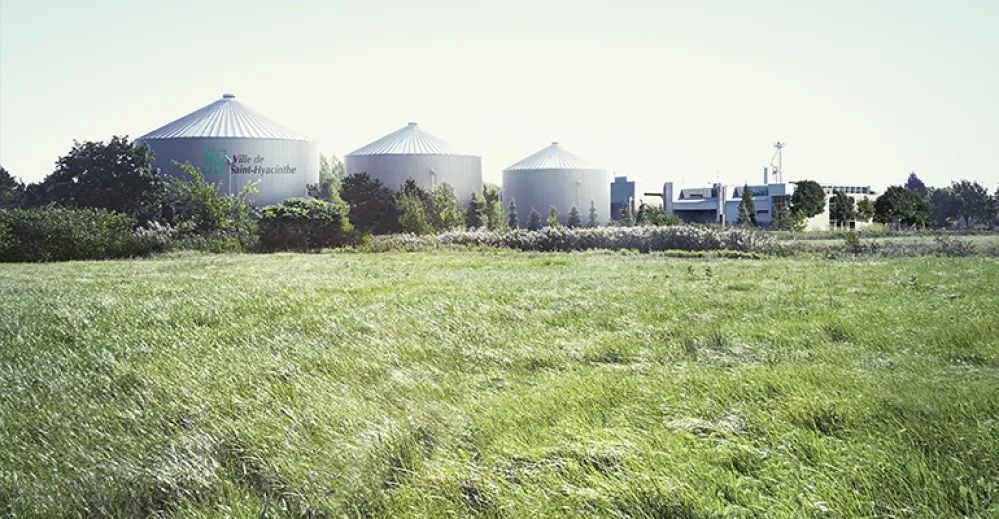
What if our organic wastes were transformed into a source of renewable energy for our municipalities? Welcome to Saint‑Hyacinthe – pioneer in the “circular economy.”
It’s always good news for citizens when their municipality reduces its expenses. Even more so when it reduces its greenhouse gas (GHG) emissions at the same time! This is the case in Saint-Hyacinthe, which has just signed an agreement with Énergir to sell its surplus production of renewable natural gas made from its organic wastes.
Sustainable development is on a roll on the banks of the Yamaska! After having implemented the biomethanation of its wastewater sludge, Saint‑Hyacinthe has now launched the collection of ‘brown bags’ and the biomethanation of all the organic matter from the region. In fact, some 23 surrounding municipalities are included in the collection of organic wastes, along with many agri-food companies.
Biomethanation consists in recuperating the biogas produced naturally during the decomposition of organic matter and then treating it to produce renewable natural gas. The advantage is double: greenhouse gases are prevented from escaping into the atmosphere and a renewable source of energy is created.
Produced here, consumed here
Saint-Hyacinthe is buckling the belt of the “circular economy” with this project since both production and consumption are local. The City will manage its biomethanation activities at its new Centre de valorisation des matières organiques (organic recycling centre). It expects to use the energy produced to meet its own needs first.
It is expected that annual savings of $0.5 million will be generated, thereby enabling the City to amortize the initial $48 M investment (financed equally by the federal and provincial governments) in a few years. Profits should also be generated, since the surplus renewable natural gas will be sold to Énergir, given approval by the Régie de l’énergie following the request tabled in fall 2014.
According to the terms of the agreement, Énergir will purchase about 12 million m3 from the City each year for the next 20 years, which will be injected into the natural gas distribution system through installations that Énergir has agreed to build. This falls perfectly into Énergir’s plans, which include offering its customers renewable natural gas produced in Québec.
Less expensive and cleaner municipal services
The City will consume its own natural gas for heating its buildings and also for fuelling its vehicles. The ‘brown bags’ from citizens will thus be fuelling the municipality’s natural gas vehicles – a first in Québec.
This initiative is part of a trend that is radically changing the transportation world in Québec. In barely five years, more than 350 natural gas vehicles have appeared on highways in Québec, and many companies have begun to convert their fleets. Municipalities can benefit from following suit since this technology, now reaching maturity, can help save up to 40% of fuel costs and reduce GHG emissions by up to 25% compared with diesel. And when the renewable natural gas comes from the biomethanation of wastes, that difference can be as high as 90%.
By transforming a cost centre (organic waste management) into a source of profits (savings from energy purchases combined with the sale of the surplus natural gas production), Saint-Hyacinthe will surely inspire other municipalities. Public finances will be better, as will the environment, since about 6% of GHGs in Québec come from landfilling waste materials. At the end of the line, it is citizens who will benefit the most, by having access to healthier public services and by breathing cleaner air.
You may also like...

